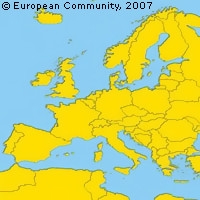Knowledge sharing and infrastructures key to ERA, say research stakeholders
'Sharing knowledge' and 'developing world-class research infrastructures' are the most important issues to be addressed in order to take the next step towards the European Research Area (ERA). This is the key outcome of the public consultation on the European Commission Green Paper 'The European Research Area: New Perspectives'. In addition, most of the over 1,000 European science stakeholders that responded to the consultation emphasise the crucial role of researchers' careers and mobility and international cooperation. They also point out the strong interdependencies between these dimensions: For example, researcher mobility has a major impact on knowledge sharing. Joint infrastructures, on the other hand, are needed to promote the emergence of European and global research communities and institutions. Depending on their background, respondents gave a different assessment of the most important aspects: Responses from Member States place great weight on the role of industry in ERA. The industry agrees and criticises the ERA Green Paper for focusing too much on public research systems. From the industry's point of view, private research and development within ERA should have been given greater prominence in the Green Paper, along with the linkages between research and innovation. Most respondents concur that, in order to promote ERA, the EU should make use of a variety of the instruments at its disposal, including financial incentives, increased EU budget, coordination and guidelines. Binding legislation, however, is not called for in most instances, European research actors believe, the exception being legislative action to improve researchers' careers and mobility and a new non-binding legal framework for pan-European research infrastructures. The public consultation showed that the Seventh Framework Programme (FP7) - although now in full swing - was not enough, commented European Science and Research Commissioner, Janez Potocnik. 'Structural weaknesses prevent Europe from exploiting the full potential of its overall research capability and require further action either at national or European levels, or both,' Commissioner Potocnik stated. 'We must sustain our efforts to realise the European Research Area (ERA) as an engine for driving the competitiveness of Europe. They also acknowledge that Europe now needs to develop a common vision and a better political governance of ERA.' In the coming months, five new initiatives are planned, following up on the ERA consultation. They will address: - the management of intellectual property by public research organisations (recommendation already adopted); - the promotion of mobility and careers of Europe's researchers; - the legal framework of pan-European research infrastructures; - joint programming and programmes; - international science and technology cooperation.



